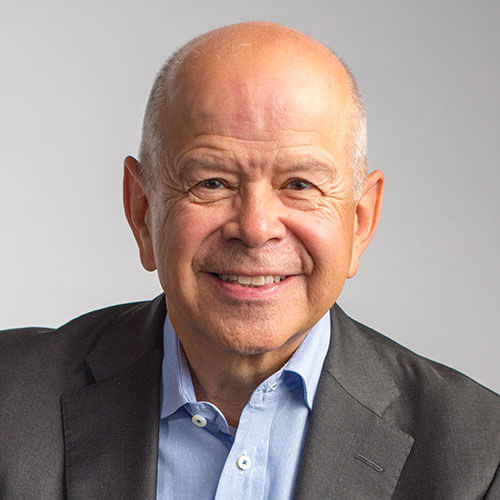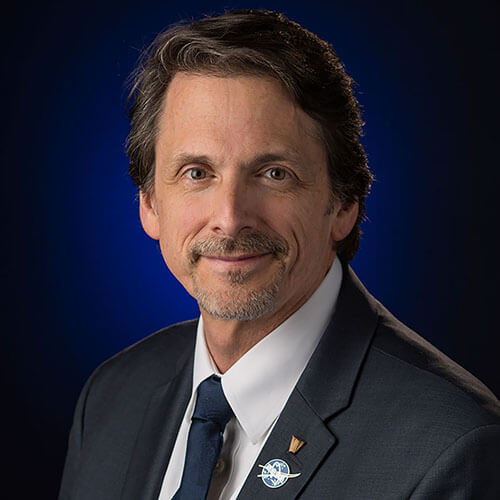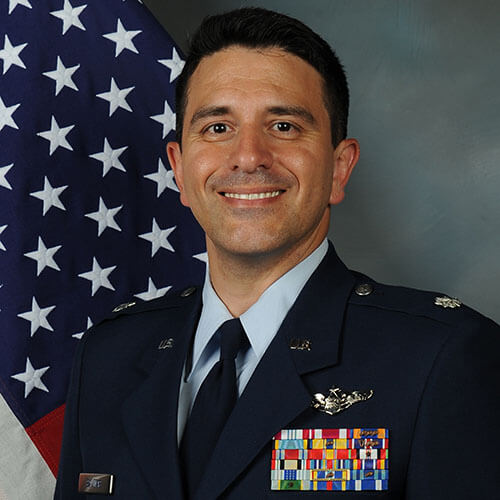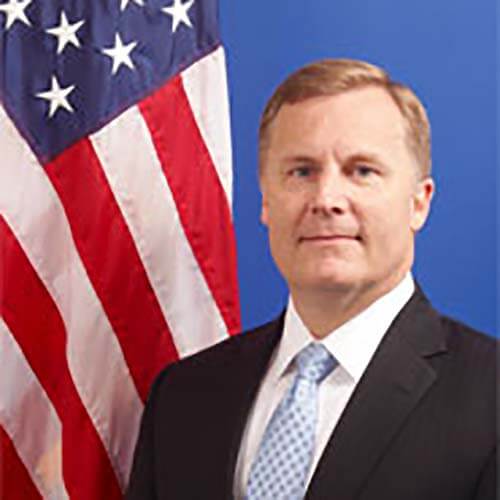The Federal Perspective on Facilitating Advanced Air Mobility Operations
Wednesday, Oct. 13, 2021
2 p.m. – 3 p.m.
Las Vegas Convention Center, Exhibit Hall, W4
Influential policymakers and thought leaders will host an important conversation about current work in the advanced air mobility (AAM) space, how each agency is preparing and planning, and future policies and regulations in this space. The panel will address the unique challenges and opportunities posed by integrating electric-powered vertical takeoff and landing (eVTOL) AAM vehicles into the current aviation system, and how the USAF, NASA and FAA are working together to provide solutions that embrace the potential for AAM to enhance transportation across the nation, while also maintaining and enhancing existing levels of safety.
Moderator

Michael Huerta
Former FAA Administrator
Michael Huerta served as Administrator of the Federal Aviation Administration (FAA) from 2013 to 2018. He currently is a senior advisor to Macquarie Capital and a member of the Board of Directors of Delta Air Lines, Inc.
During his FAA tenure, Huerta redefined the FAA’s regulatory relationship with the aviation industry to achieve greater levels of safety through increased collaboration and widespread sharing of data. He led the agency’s efforts to modernize the nation’s air traffic control system through the NextGen program while preparing the way for the safe integration of commercial space operations and small unmanned aircraft systems (UAS). He is also well known for eliminating the decades old ban on the use of portable electronic devices aboard airplanes during takeoff and landing, making it possible to use many devices from gate to gate.
Prior to joining the FAA, Huerta served in executive positions at Affiliated Computer Services, Inc., the Salt Lake Organizing Committee for the Olympic Winter Games of 2002, the U.S. Department of Transportation, the Port of San Francisco and the New York City Department of Ports, International Trade and Commerce.
Huerta holds a BA from the University of California, Riverside and an MPA from the Woodrow Wilson School of Public and International Affairs at Princeton University.
Panelists

Steve Clarke
Deputy Associate Administrator
NASA Aeronautics Research Mission (ARMD)
NASA Aeronautics Research Mission (ARMD)
As deputy associate administrator for ARMD at NASA Headquarters in Washington, DC, Steven Clarke is responsible for leading long-term strategic, portfolio and budget planning and analysis for ARMD to guide long-term portfolio requirements and program balance to meet national needs.
Previously, as the deputy associate administrator for exploration in NASA’s Science Mission Directorate, Clarke served as the agency’s interface between the NASA mission directorates, the scientific community, and other external stakeholders in developing and implementing Space Policy Directive-1 using an integrated approach to achieve science and human exploration objectives for the Moon and Mars.
Clarke returned to NASA after serving as a senior policy analyst with the Office of Science and Technology Policy (OSTP) in the Executive Office of the President, where he was responsible for leading a number of important initiatives, including space weather. He led the cross-government Space Weather Operations, Research and Mitigation subcommittee as the OSTP co-chair.
Prior to his OSTP duties, Clarke was director of NASA’s Heliophysics Division, where he led a research program that used scientific flight investigations and research grants to understand the Sun, its interactions with the Earth and the solar system, and how the observed phenomena impact life and society.
Clarke also served as director of NASA’s Joint Agency Satellite Division, where he led reimbursable spacecraft and instrument development activities performed by NASA for partner agencies, including the Deep Space Climate Observatory, Joint Polar Satellite System and the Geostationary Operational Environmental Satellite (GOES)-R series. He also supported the deputy associate administrator of the Exploration Systems Development Division at NASA Headquarters, where he was responsible for developing the architecture for human exploration beyond Earth orbit.
He has received numerous awards during his career, including the Presidential Rank Award and NASA’s Exceptional Achievement Medal for outstanding leadership.
Clarke earned a bachelor’s of science degree in engineering and a master’s of science degree in engineering management from the University of Central Florida.

Col. Martin Salinas
Chief Operating Officer
AFWERX, Air Force Research Laboratory
Col Martin Salinas is the Chief Operating Officer for AFWERX, Air Force Research Laboratory, Austin, TX. Prior to his current position he led the Mission Design Team for AFWERX Agility Prime and was a test director for the Air Force Operational Test and Evaluation Center (AFOTEC). As a test director he led test and operational context initiatives for experimental programs such as Agility Prime’s electronic vertical take-off and landing aircraft portfolio, and Skyborg’s Autonomous Attritable Aircraft experiment (AAAx).
His operational experiences include duty as a B-52H Standardization and Evaluation Electronic Warfare (EW) Officer with the 96 Bomb Squadron, Barksdale AFB, LA and as an Undergraduate EW and Navigator training instructor with the 563 Flying Training Squadron, Air Education and Training Command (AETC) Randolph, AFB, TX.
Following this, Salinas was assigned to the Air Force Personnel Center as Chief of Bomber assignments where he managed 1,200 personnel across multiple specialties and led the development of strategic manpower planning for B-52 and B-2 bomber aircraft personnel.
He has served as the Secretary of the Air Force International Affairs’ inaugural Italian Air Staff Exchange Officer, in Rome, Italy where Salinas worked closely with multiple levels of political and military stakeholders to include the Italian Ministry of Defense, the Italian Joint Staff, and The U.S. Embassy.
In returning to the United States, Salinas served as the 2d Operations Group Deputy Commander, 2d Bomb Wing Inspector General, Barksdale AFB, LA, and then Director of Operations for the F-35 U.S. Reprogramming Laboratory, Eglin AFB, FL.
Salinas has deployed to Diego Garcia, British Indian Ocean Territory, in support of Operations Enduring Freedom and Iraqi Freedom, to Kabul, Afghanistan as the International Security Assistance Force (ISAF) Electronic Warfare Coordination Cell Chief of Plans and Operations, and to Africa as the Air Forces Africa Liaison Officer to Niger. Salinas is a senior navigator with over 2,000 hours in the B-52H, including over 600 combat hours.
Salinas received his commission through the Air Force Reserve Officer Training Corps program in 1999 from Texas A&M University and completed undergraduate navigator training at Randolph AFB,TX.

Chris Rocheleau
Deputy Associate Administrator for Aviation Safety, FAA
As Deputy Associate Administrator for Aviation Safety at the FAA, Chris Rocheleau assists in leading the organization responsible for setting safety standards and overseeing all aspects of the aviation industry – airlines, manufacturers, repair stations, unmanned aircraft and a wide variety of aviation professionals. These diverse programs have a direct impact on every facet of domestic and international civil aviation safety.
Rocheleau has served the FAA with distinction for over 20 years in multiple roles including Chief of Staff, Assistant Administrator for Policy, International Affairs and Environment, Executive Director for International Affairs, and Director of the Office of Emergency Operations and Investigations.
Rocheleau was an original member of the TSA as the manager of TSA’s Intelligence Operations Watch and subsequently served as the senior policy advisor to the Assistant Administrator for Transportation Policy.
Before joining the FAA, Rocheleau served in the military as an officer and special agent with the United States Air Force Office of Special Investigations and held leadership positions in the U.S. and overseas. He retired as a lieutenant colonel from the U.S. Air Force Reserve in 2010.
Rocheleau holds a Bachelor’s degree from Central Connecticut State University, and a Master’s of Public Administration from City University of Seattle. Rocheleau also successfully completed the Executive National Security Program at Harvard’s Kennedy School of Government and USAF Air Command and Staff College.
Rocheleau is a member of the Aero Club of Washington, the International Aviation Club of Washington, Association of Former OSI Special Agents and the Fraternal Order of Police.
Any person who attends an NBAA convention, conference, seminar or other program grants permission to NBAA, its employees and agents (collectively "NBAA") to record his or her visual/audio images, including, but not limited to, photographs, digital images, voices, sound or video recordings, audio clips, or accompanying written descriptions, and, without notifying such person, to use his or her name and such images for any purpose of NBAA, including advertisements for NBAA and its programs.


 International Business Aviation Council Ltd.
International Business Aviation Council Ltd.